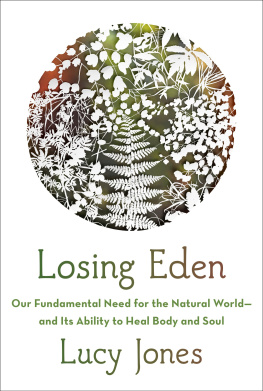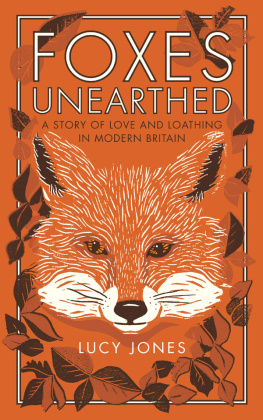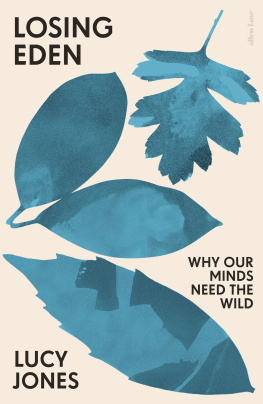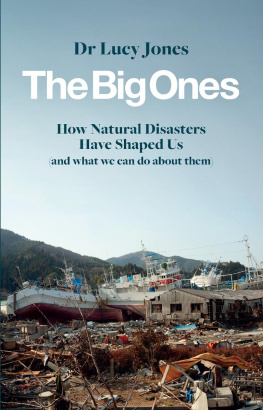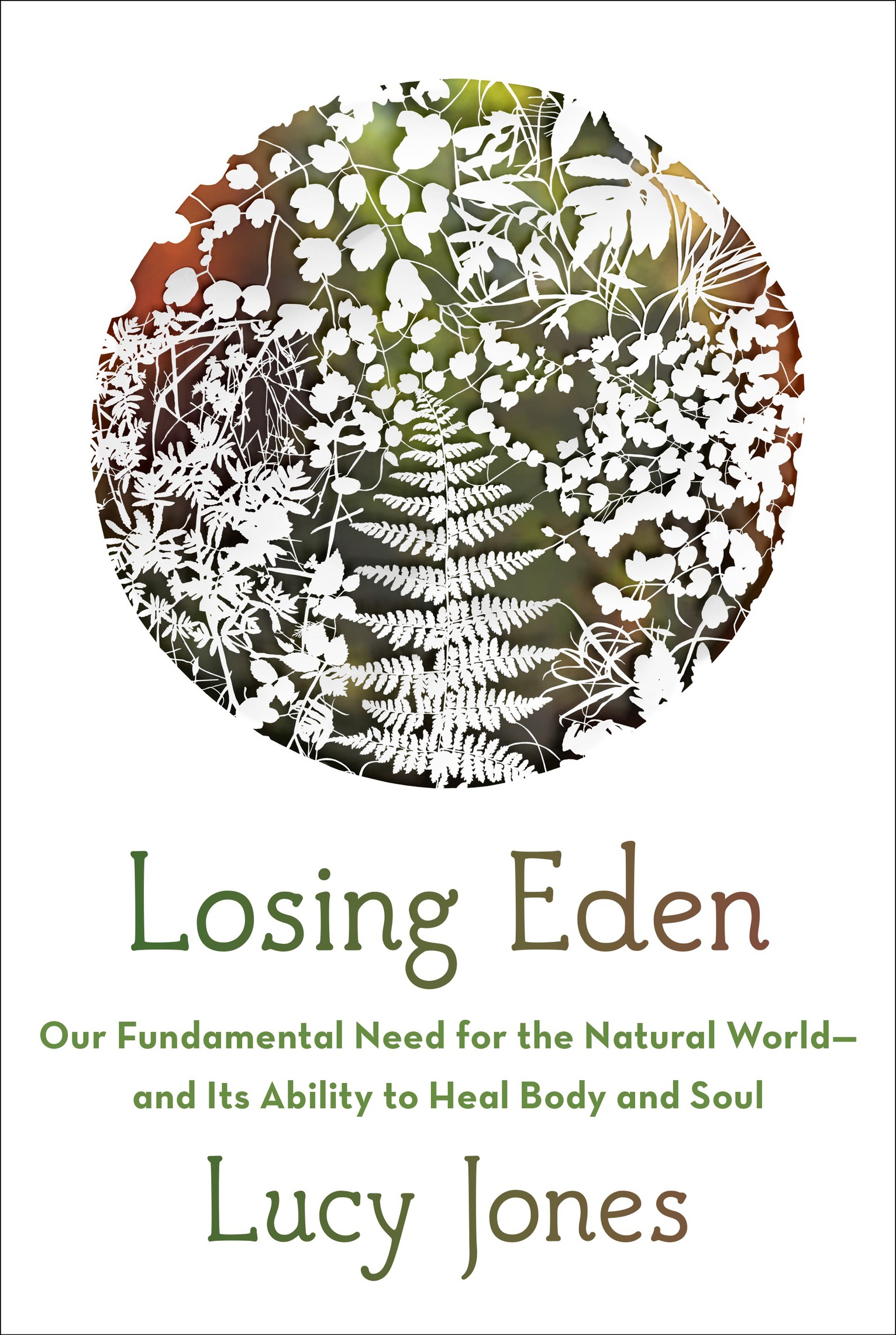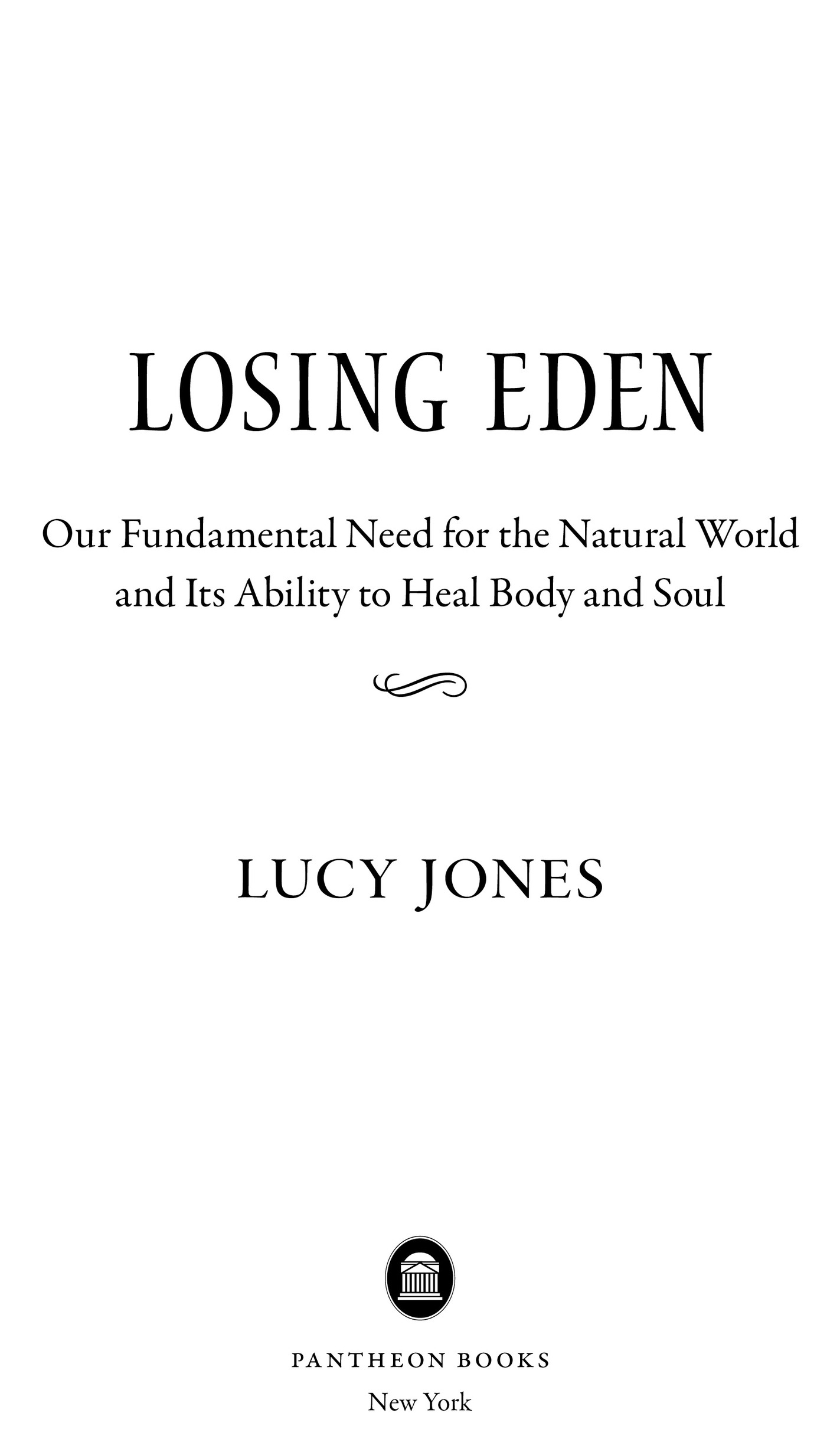All rights reserved. Published in the United States by Pantheon Books, a division of Penguin Random House LLC, New York. Originally published in hardcover, in Great Britain, in slightly different form, by Allen Lane, an imprint of Penguin Press, a division of Penguin Random House Ltd., London, in 2020.
Pantheon Books and colophon are registered trademarks of Penguin Random House LLC.
Names: Jones, Lucy (Journalist), author.
Title: Losing Eden : our fundamental need for the natural world and its ability to heal body and soul / Lucy Jones.
Description: First United States edition. New York : Pantheon Books, 2021. Includes bibliographical references and index.
Identifiers: lccn 2020045787 (print). lccn 2020045788 (ebook). isbn 9781524749323 (hardcover). isbn 9781524749330 (ebook).
Subjects: lcsh : Human beingsEffect of environment on. NatureSocial aspects. NaturePsychological aspects. Well-being.
Classification: lcc gf 51 . j 66 2021 (print) | lcc gf 51 (ebook) | ddc 304.2dc23
Prologue
Xena walked down the street towards her grandmothers house. It was a boiling hot day, but shed remembered her hat, respirator and sun goggles. She walked as fast as she could down the pavement, then through the concrete tunnel and up the covered stone stairway to get out of the blaze of the sun. She could hear the boom of the high-speed train in the next borough as she walked. She crossed the road to walk over to the pop-up green spaceAstroturfbut thought better of it: recently, it had got so hot that the plastic grass had melted onto her friends sandals. Xena took the longer route. Even the artificial trees couldnt provide shelter from the heat today. The mountains in the distance were almost blotted out by the smoke of the wildfires, and she could barely see past twenty metres ahead. All was grey. A bus passed with an advert for a new telegarden programme, scheduled for 2102. People could log in via their brain chip, and plant and water virtual seeds to see them grow. She made a mental note to mention it to her granny.
Granny couldnt often leave the house any more, so Xena would have to go and visit her, but she didnt mind. She had a holographic nature scene (HNS) set up in the living room and Xena always felt happier and less stressed-out after a visit. The HNS she liked best had actual trees on one side, which were a kind of greeny-brown. In the middle of the screen was a lake, and occasionally shed see a fish leap out of the water. The lake looked clean, nothing like the dirty, stinking basins and rivers near Xenas home. Her favourite thing about the HNS was the sound. It was a kind of music shed never heard before: birds singing, frogs croaking, something barking. Shed seen birds in the local museum and her school sometimes piped birdsong into the classroom, but shed never seen one in real life. She wondered if Granny had.
Xena arrived and rang the doorbell. Her breathing began to slow, though a slight rasp remained, and she wiped the sweat from her forehead. After a minute or so, Granny opened the door and beckoned her in. She stroked her head, squeezed her hand and led her through the apartment.
Xena was relieved to see the HNS was working and she climbed onto the sofa and curled up.
Ive got a new one for you, darling, said Granny.
She drew a letter H over her implant and the hologram appeared. At first the scene was foggy and it was hard to see anything, but when the mist cleared Xena saw a group of very tall trees with all sorts of limbs and bits coming off them. Then she noticed something small and bright green. Suddenly, it leaped into the air and disappeared.
What was that, Granny?
Oh, thats atree frog. This is a tropical rainforest.
Tropical rainforest, repeated Xena slowly.
Three birdswell, she thought they were birdsflew through the scene. They had long orange noses and black and white bodies. She couldnt believe that they could stay up in the air with such long noses. She followed the birds and her eyes rested on a tiny creature with big yellow eyes nestled in a branch.
What is that, Granny? she squealed.
An owl, darling, maybe a baby owl.
This is the best HNS so far, Granny, she said.
I wish you couldve seen it in real life.
Birds in real life, like every day?
Yes, and other animals too.
Actually walking around? Not in a zoo?
Sometimes. And insects. Do you know about butterflies?
We were told about them at school.
England was full of butterflies. You could sit in a garden or park and spot quite a few different species in the summer.
What was it like, Granny?
Oh, it was
Granny paused. Xena looked around. Alarmed, she saw that Granny seemed to be crying.
Granny!
Granny cleared her throat.
Was it like this, but in real life? She gestured to the hologram.
Well, yes, if you were in the rainforest, said Granny. In England, in my garden, youd see small creatures called bumblebees that looked like tiny bears, in black and yellow. In the warmer months, you could hear the hum of insects looking for nectar. My favourite butterfly had black stripes over its orange wings, so it looked a bit like a flying tiger. There were trees called oaks, which lived for hundreds of years. The garden looked different every day.
Could you touch the trees, Granny?
Oh yes. You could touch the leaves and the plants and the flowers.
What did they feel like?
Soft, I suppose, but each one felt different. Dandelions were called a weed, but in the early summer they turned into these perfect bulbous globes which you could blow and all the furry seed heads would fill the air.
Like magic?
Yes, in a way. We called them dandelion clocks. And the scents were so good. Each flower smelled different. I loved the smell of roses, the bluebells, the pine treesOh, do you know about conkers?
No, whats that?
In the springthat was the season when everything came out in bloomthe horse chestnut tree did this thing called candling, where it would grow flowers that looked like ice-cream sundaes. Later, the plant would produce these bright green balls covered in spikes. When they dropped off the tree, wed look inside their cracked shells to find something we called conkers. They were brown and shiny and meant that autumnthat was another seasonwas here and the leaves would soon change colours, from green to red or orange or yellow.
Youre kidding, Granny!
Granny shook her head.
And you saw that every day if you wanted to?
Yes, darling.
What was it like?
It waswonderful.
Why did nature end, Granny?
Granny sighed. We didnt love it enough, she said. And we forgot that it could give us peace.

